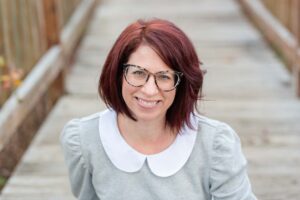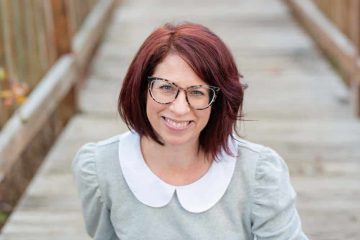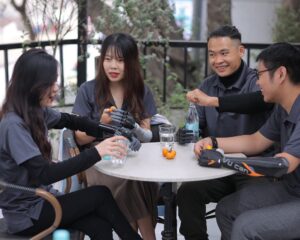 Guest Post by Joey Holliday. Joey Holliday is a licensed mental health therapist, educator and photographer. She has a private practice in Boston, MA. Her website is joeyholliday.education.
Guest Post by Joey Holliday. Joey Holliday is a licensed mental health therapist, educator and photographer. She has a private practice in Boston, MA. Her website is joeyholliday.education.
I have been a mental health therapist working with members of the LDS faith since 2007.
In 2017 I began an intensive study of trauma and attachment theory. Things started to shift for me as I did, and concerns grew around the way principles were taught in the church.
Through my studies and training, I consciously became aware of what I have always unconsciously known and held. I was reminded where truth and wisdom are found.
Our bodies.
Our bodies know what we need.
As I gained a deeper understanding of how the body responds when it feels overwhelmed and what is needed for the body to feel safe, I began to realize how much the body and biology need to be respected and understood in our faith. As well as how much harm is happening in our faith because this knowledge is missing.
Our bodies are divinely designed. Our Heavenly Parents know how they work and lovingly honor that. We need to too.
I believe if we truly knew and compassionately understood how our bodies are designed to help us survive experiences that are overpowering to us, there could be a profound change in our faith. It could be a safer and more welcoming place for all those who want to participate.
Our bodies need to feel safe to connect, grow, heal, and restore what has been lost or missing.
Safety is everything, my friends. Our bodies know it and yearn for it.
My journey of shifting perspectives began as I studied a caregiver’s qualities that provide a secure attachment.
Attachment theory helps us understand how our internal patterns of how we see ourselves and interrelate with the world are created early in life through the types of communication and interaction with our caregivers and are reinforced by experiences throughout our lives.
When we have a secure attachment, we are more able to feel solid/safe in our bodies, trust ourselves and others, and have the skills inside of ourselves to handle the challenges that come our way.
If we don’t have a secure attachment, we are more likely to be overwhelmed easily (even with small things), be inflexible, not trust ourselves or others, and believe that something is wrong with us.
There are certain qualities of our caregivers that provide the right physiological conditions to develop a secure attachment.
As I read about those qualities, there was NO mention of a caregiver who used fear-based tactics, showed anger or disappointment in choices, created conditions for a child to prove their love or worth, or a desire to control them.
Qualities that were mentioned that helped a child to feel safe and secure in their body included (but are not limited to) kindness, a welcoming presence, willingness to listen and attune to the child’s wants and needs, ability to stay emotionally close even when the child is dysregulated and has a loving countenance.
Through studying, I was reminded of the true character of our Heavenly Parents. Their only agenda for them and Jesus Christ is to comfort us and help break down the world when it is too big for us. Nothing else.
We have forgotten and lost touch with who Heavenly Parents are and why we are here.
We do not earn their time, love, or attention. And we do not need to prove our ability to return to them by becoming more holy or righteous. Jesus Christ lovingly guaranteed our return. We are here learning how to become Gods and our Heavenly Parent’s peers.
My friends, emotional safety cannot be found when worthiness is on the line.
If we feel we need to prove our worthiness (a sense of belonging), this leads to a sense of threat. When we feel a sense of threat in our bodies, we do not feel safe.
No part of me believes our Heavenly Parents want us to feel unsafe in our bodies and feel like we don’t belong with them. We suffer in so many ways when we feel unsafe, impacting our daily functioning.
Another physiological condition that provides a secure attachment is called mindsight. I learned this concept from the work of Daniel J. Siegal, MD. He describes mindsight as “the ability to see the internal world of self and others, not just to observe behavior.”*
Our Heavenly Parents see below our behavior because they know how our bodies work.
They know we are so much more than our choices because they understand what impacts our choices-our thoughts and feelings. Our thoughts and feelings are directly impacted by what is happening with our nervous system (where a sense of safety or lack thereof is coming from). Our experiences in life affect our nervous system.
When something happens that is too big for our body to handle, and we don’t get the support needed for it to get broken down, this leaves our body in a state of fear until the experience(s) are processed. Trauma symptoms develop when overwhelming feelings are not processed in our bodies.
It is important to understand no one defines what is too big for your body or what is considered traumatic, except for you!
As noted before our bodies were divinely designed, and they were lovingly created in a way to protect us when things are too big for us to carry in the moment. They will do whatever they need to protect us (survive) when we feel or anticipate pain.
When something is happening in the present that is overwhelming to our bodies or reminds us of something that is not yet processed from the past, our bodies unconsciously react to protect us. Our prefrontal cortex shuts down. This part of the brain impacts our ability to think, be flexible, regulate emotions, be empathetic, and have awareness.
We are not consciously choosing our choices when we feel a sense of threat of any kind or in any proportion. All our bodies are trying to do is survive and are prioritizing this.
Undigested stress and trauma symptoms impact our choices.
I feel this precious knowledge of how our bodies work is not known by our leaders and in our faith.
But it is absolutely known by our Heavenly Parents. They see below our behavior.
Our Heavenly Parents truly understand what is impacting us and honor that with tenderness and care, not disappointment or judgment.
They know that maladaptive choices hurt us and others. But they also know there is so much more to us than any given choice we make.
Our Heavenly Parents know the thoughts and the choices we make in the moment may have nothing to do with our values, morals, willpower, or belief in them due to the state of mind. They know the thoughts and choices we make have everything to do with the sense of safety we feel in our bodies.
Our Heavenly Parents know when we feel safer, we can make consciously choose our choices. We find safety through doing the emotional work to heal.
We can do this critical work with our Heavenly Parents and Jesus Christ’s support. They see our pain and want to help us.
All my (ongoing) study of trauma, attachment theory, neurobiology, and what is needed to heal truly led me to create a course and desire to build a community for members of the LDS faith where individuals gain education on trauma and attachment wounding to support their healing journey.
I genuinely want members to find and feel safe with themselves, others, and in their participation with their faith. I want the church to be a safe place to belong, and I fear for so many, it is not.
I combined spiritual and psychological principles in the ‘Finding Safety with Self, Others, and our Heavenly Parents’ course. I present education on trauma and attachment theory and discuss how certain principles are taught in the LDS faith that is unintentionally creating an unsafe environment for members by reinforcing trauma symptoms.
I am not trying to be critical of our leaders or the church. I only want this knowledge to be known so individuals can work towards feeling the relief their body yearns for and learn to feel safe in their bodies and with one another.
I fear many in our faith do not recognize the pain they are in and the needed healing. The impact of trauma causes us to want to push our feelings away (survival tool). But religiously, we are also encouraged to focus externally (our behavior/on others), then be with ourselves internally and notice what we are feeling.
I pray for this to change. I believe so many need personal healing within our faith. We are doing the best we can, and being hurt and wounded is not an individual’s fault. But I see the pain in my interactions with members, and through the comments, I hear at church. My heart aches for the suffering that is unattended and not seen or known.
I also believe that if we were to address and learn how to heal individually, we could move towards a collective healing experience in our faith.
Collective healing, too, is needed. We need to heal as a community and learn how to create a sacred space where all suffering is welcomed, seen, and honored. As we learn to see our pain, we are more able to see the pain of others.
And isn’t this what we want and teach in our faith?
This, my friends, is my call and passionate desire to educate and create a safe community where we can learn together about individual and collective healing through a trauma-informed lens and faith.
*Reference:
Siegal, D. (2020). The Developing Mind: How Relationships and the Brain Interact to Shape Who We Are (3rd Edition). The Guilford Press.






19 Responses
“Emotional safety cannot be found when worthiness is on the line.”
Absolutely. And worthiness and belonging always being in flux is so damaging to trust and safety.
I agree, being in flux is so damaging to trust and safety!
YES to all of this. Especially this: “Our Heavenly Parents know when we feel safer, we can consciously choose our choices. We find safety through doing the emotional work to heal.”
Having the capacity and ability to consciously choose my choices is the result of almost five years of healing work in therapy. It’s so much emotional, mental and physical effort to sift through trauma, especially church trauma. The safety is worth it though.
I love Siegal’s work! His books with Tina Payne Bryson guide how I function as a parent. I assume you have studied Van der Kolk as well? While recently completely a trauma-informed graduate teaching degree, I often wished there was a trauma informed approach at church. Thank you for creating this program. I agree it is vital information for church leaders.
Hi Bailey! Thank you! Yes, I do value Van der Kolk’s work as well. Trauma-informed teaching degree sounds amazing. Good luck to you!
Thank you, Joey!
Your thoughts are timely, particularly as we read the old testament in our Sunday school curriculum. We need, I think, to re-translate some of the accounts in the old testament in order to not allow many of the attributed motives of God (as recorded anciently) to contaminate our better-informed view of a loving God, both Father and Mother.
And thank you for the courage to speak out about a subject which is rarely, if ever, discussed in our faith.
Hi Mark! Thank you. I appreciate your thoughts of re-translating some of the accounts of the old testament. I agree, it is so needed.
Sister Holliday,
Amen!
Blessings,
Brother McKee
Hi Brother Mckee! Thank you!
🙂
“If we feel we need to prove our worthiness (a sense of belonging), this leads to a sense of threat.” Yes! Thank you for this thoughtful post. It’s time for our leaders to start re-thinking God language and God discourse. I too want a church community that values safety and avoids discourse that produces trauma and anxiety.
Hi Caroline! I am glad the article resonated with you. I too agree that I think it is time for our leaders to start re-thinking God language and discourse.
Thank you! It is encouraging to hear others in the church expressing how trauma informed thinking and actions play out in church acceptance.
I began coming to these same understandings when I started studying the effects of generational trauma. I highly recommend “The Body Keeps the Score” and “All Things New: Rethinking Sin, Salvation, and Everything in Between.”
Hi Michelle! Thank you! The books you mentioned are wonderful and informative I love them too!
Amen, thank you, Joey! I feel like it’s taken a lot of therapy for me to get more in connection with my body and how I’m doing.
I loved this paragraph especially:
I fear many in our faith do not recognize the pain they are in and the needed healing. The impact of trauma causes us to want to push our feelings away (survival tool). But religiously, we are also encouraged to focus externally (our behavior/on others), then be with ourselves internally and notice what we are feeling.
The focus on others is so real. Finding ways to sit with how we are feeling and doing is so hard to learn. I also really appreciated you acknowledging that we need to honor all trauma. We are all on a healing journey. So grateful for this.
Hi Carolann!
Thank you for your kind words!! I so agree, learning to be with our feelings is SO hard. I so want to address collective trauma. My mind and body as been hurting and shifting the more I understand it.
Such important and hopeful thoughts – when leaders understand this, we might see some change in how people are treated. We claim the church is a hospital, and then are surprised, overwhelmed or even disgusted when congregants show some of their trauma-related symptoms.
How can I access your ‘Finding Safety with Self, Others, and our Heavenly Parents’ trauma course? Is it available online? I am very interested in purchasing this, please!
Hi Deborah! Thank you! I so appreciate your thoughts. I very much agree.
In regard to the course, it is not online (recorded) at this time. I teach it live virtually. I will be teaching it again in October of this year. It runs for 4 weeks. We meet on Saturday mornings and it is 2 hours long. I would love to have you join the next round of the course, if that feels right to you. Please reach out to me with any questions. My email is: [email protected]. Information about the course/registration is found at: https://joeyholliday.education/
Thank you so much – I will definitely be enrolling! 🙂
Wonderful! I look forward to meeting you!